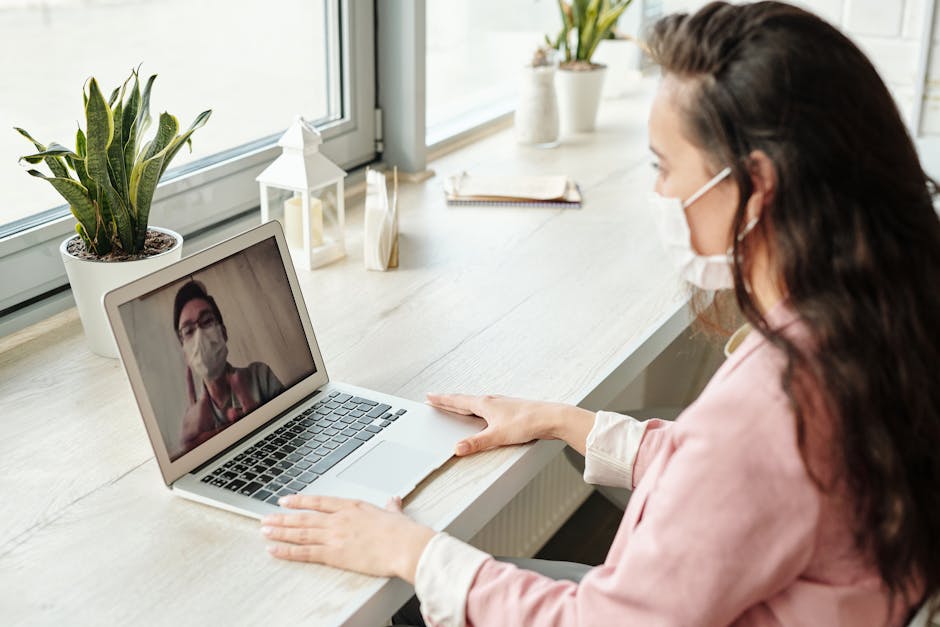Pushing Boundaries In Leeds’ Healthcare With Mobile App Development
Imagine a bustling city, constantly evolving and pushing boundaries to improve the lives of its residents. Leeds, a vibrant hub in West Yorkshire, is not only known for its rich history and thriving cultural scene but also for its innovative approach to healthcare.
In this era of digital transformation, Leeds has embraced mobile app development as a catalyst for revolutionising healthcare delivery. Like a skilled architect meticulously crafting blueprints for a modern masterpiece, healthcare professionals in Leeds are harnessing the power of mobile apps to enhance patient accessibility and convenience. With personalised care at the forefront, these apps empower patients to take control of their health journey.
Through remote consultations, doctors can now connect with patients from the comfort of their own homes. This not only improves efficiency but also ensures that no one is left behind when it comes to accessing quality healthcare.
Furthermore, mobile apps enable efficient tracking and management of patient data, allowing healthcare providers to make informed decisions and deliver tailored treatments. The result? A transformative healthcare experience that is revolutionising how we approach wellness in Leeds.
Join us on this exciting journey as we explore how mobile app development is pushing boundaries in Leeds’ healthcare industry, ultimately paving the way for better patient outcomes.
Key Takeaways
- Mobile app development is revolutionising healthcare delivery in Leeds.
- Mobile apps enhance patient accessibility and convenience.
- Remote consultations improve accessibility and convenience for patients.
- Efficient tracking and management of patient data streamline the healthcare process.
Enhancing Patient Accessibility and Convenience

The healthcare industry in Leeds is revolutionising patient accessibility and convenience through innovative mobile app development. With the advent of technology, patients now have the power to take control of their healthcare journey. Mobile apps are empowering patients by providing them with easy access to medical information, appointment scheduling, and virtual consultations.
One key aspect of enhancing patient accessibility is telemedicine integration. This feature allows patients to connect with healthcare professionals remotely using video calls or messaging platforms. Through telemedicine, patients can receive immediate medical attention without having to travel long distances or wait for appointments. This not only saves time but also reduces unnecessary hospital visits.
Mobile apps also provide a platform for patients to manage their health records conveniently. Patients can access their medical history, test results, and prescription details at any time, eliminating the need for carrying physical documents. Additionally, these apps offer medication reminders and personalised care plans tailored specifically to each patient’s needs.
By leveraging mobile app development in healthcare, patients can experience a significant improvement in their overall quality of care. The convenience offered by these apps enables individuals to actively participate in their own well-being and make informed decisions about their health.
The incorporation of mobile app technology in the healthcare industry is transforming patient accessibility and convenience in Leeds. Patient empowerment through telemedicine integration has made it easier for individuals to seek timely medical advice from the comfort of their homes. Moreover, personalised care through mobile apps ensures that each patient receives individualised attention based on their unique requirements.
Transitioning into the subsequent section about personalised care through mobile apps highlights how this innovation enhances patient engagement even further without explicitly stating ‘step.’
Personalised Care through Mobile Apps

Revolutionising patient care in Leeds, mobile apps offer an unparallelled level of personalised assistance. Through patient engagement and health monitoring, these apps have the potential to transform the way healthcare is delivered.
-
Real-time Health Monitoring: Mobile apps enable patients to monitor their health conditions in real-time, providing them with valuable insights into their own well-being. With features like activity tracking, heart rate monitoring, and sleep analysis, individuals can proactively manage their health and make informed decisions about their lifestyle choices.
-
Personalised Treatment Plans: Mobile apps allow healthcare providers to create personalised treatment plans for each individual based on their unique needs and medical history. By integrating patient data such as medical records, symptoms, and medication reminders, these apps ensure that patients receive tailored care that addresses their specific concerns.
-
Enhanced Patient Engagement: Mobile apps promote active participation from patients by providing them with tools to actively engage in managing their own healthcare. Features like appointment scheduling, medication reminders, and access to educational resources empower individuals to take charge of their well-being and stay on top of their treatment plans.
With mobile apps offering personalised care through patient engagement and health monitoring, the future of healthcare delivery in Leeds holds great promise. The next section will explore how remote consultations further improve accessibility and convenience for patients without compromising on the quality of care they receive.
[Start Subsequent Section Here] [Start Subsequent Section Here]
The integration of telemedicine and remote consultations is revolutionising healthcare delivery in Leeds, enabling patients to access medical services from the comfort of their homes or any location convenient for them. This section will delve into the various benefits and advancements offered by remote consultations, ensuring that patients receive high-quality care while enhancing accessibility and convenience.
Remote Consultations for Improved Healthcare Delivery

Experience the convenience and accessibility of receiving high-quality healthcare from the comfort of your own home through remote consultations. Telemedicine benefits have revolutionised the way healthcare is delivered, allowing patients to connect with doctors virtually through virtual doctor visits. This innovative approach to healthcare delivery has numerous advantages that can greatly improve access to care and patient outcomes.
One of the main benefits of remote consultations is the ability to receive medical advice and treatment without having to leave your home. This is especially beneficial for individuals who live in rural areas or have limited mobility, as it eliminates the need for long commutes or transportation issues. Virtual doctor visits also eliminate wait times at clinics, allowing patients to receive timely care from the convenience of their own homes.
In addition to increasing accessibility, remote consultations can also improve patient satisfaction. Many individuals find it more comfortable and less intimidating to communicate with a healthcare provider through video calls rather than face-to-face interactions. Patients can discuss their symptoms and concerns in a relaxed environment, leading to more open and honest conversations with their physicians.
Furthermore, remote consultations enable more efficient tracking and management of patient data. Through telemedicine platforms, healthcare providers can easily access medical records, test results, and other relevant information about their patients. This streamlines decision-making processes and enables faster diagnosis and treatment planning.
Transitioning seamlessly into efficient tracking and management of patient data allows for better coordination of care across different healthcare settings. By harnessing technology in this way, we’re pushing boundaries in Leeds’ healthcare system by providing comprehensive care that’s tailored specifically to each individual’s needs.
Next step: Discover how efficient tracking and management of patient data enhances collaboration amongst healthcare professionals for improved health outcomes.
Efficient Tracking and Management of Patient Data

Enhance collaboration amongst healthcare professionals and improve health outcomes by efficiently tracking and managing patient data through telemedicine platforms. In the digital age, technology has revolutionised the way healthcare is delivered, enabling remote consultations and providing access to medical expertise regardless of geographical barriers.
However, with the increasing reliance on telemedicine, it becomes crucial to ensure that patient data is tracked and managed efficiently to further enhance healthcare delivery.
Improving efficiency in tracking and managing patient data can significantly streamline the healthcare process. By digitising medical records and integrating them into telemedicine platforms, healthcare professionals can easily access patient information in real-time, allowing for faster diagnoses and treatment decisions. This seamless flow of information eliminates the need for manual record-keeping and reduces administrative burdens, ultimately improving overall efficiency.
Data security is another essential aspect when it comes to managing patient data in a digital environment. With sensitive information at stake, robust security measures must be implemented to protect against unauthorised access or breaches. Encryption techniques can be employed to secure data transmission between healthcare providers and patients during teleconsultations. Additionally, strict authentication protocols should be enforced to ensure that only authorised personnel have access to patients’ electronic medical records.
Efficient tracking and management of patient data not only improves collaboration amongst healthcare professionals but also enhances overall health outcomes for patients. It allows for more accurate diagnoses, personalised treatment plans, and timely interventions. By leveraging technology effectively in this aspect of healthcare delivery, we can revolutionise the entire experience for both healthcare providers and patients.
Transitioning into our next section about ‘revolutionising the healthcare experience in Leeds,’ let’s explore how mobile app development plays a vital role in transforming traditional healthcare practises into innovative solutions that prioritise convenience while maintaining quality care standards.
Revolutionising the Healthcare Experience in Leeds

By embracing innovative solutions and leveraging cutting-edge technology, you can transform the healthcare landscape in Leeds into a seamless and patient-centric experience. The key to achieving this lies in revolutionising the healthcare infrastructure through mobile app development.
With improved healthcare infrastructure, patients will have access to a wide range of services right at their fingertips.
-
Enhanced Accessibility: Mobile apps can provide patients with instant access to medical professionals, allowing them to schedule appointments, request prescriptions, and receive personalised health advice without having to leave their homes. This level of accessibility ensures that patients receive timely care and reduces unnecessary visits to hospitals or clinics.
-
Streamlined Communication: Through secure messaging features, mobile apps facilitate efficient communication between patients and healthcare providers. Patients can easily share their symptoms or concerns with doctors, enabling faster diagnosis and treatment planning. Additionally, healthcare providers can send important updates or reminders directly to patients’ devices, ensuring better adherence to treatment plans.
-
Enhanced Security: Mobile app security is paramount when dealing with sensitive patient data. By implementing robust encryption protocols and authentication measures, healthcare providers can ensure that patient information remains confidential and protected from unauthorised access or cyber threats.
By embracing technology for better patient outcomes, we can further improve the overall quality of care in Leeds. Through mobile app development that focuses on enhancing accessibility, streamlining communication, and prioritising security measures, we can create a healthcare system that puts the needs of patients first.
This shift towards a more patient-centric approach will not only improve efficiency but also result in better health outcomes for individuals across Leeds.
Embracing Technology for Better Patient Outcomes

Take advantage of cutting-edge technology and embrace innovative solutions to revolutionise the healthcare landscape, allowing you to seamlessly improve patient outcomes and create a healthcare system that prioritises your needs. By incorporating mobile app development into the healthcare experience in Leeds, we can significantly enhance treatment outcomes and improve communication between patients and healthcare providers.
One key aspect of embracing technology is improving communication. Mobile apps provide a platform for patients to easily communicate with their healthcare providers, whether it’s through secure messaging systems or video consultations. This allows for more convenient access to care, especially for those who may have difficulty physically visiting a clinic or hospital.
Additionally, these apps can provide patients with personalised information about their conditions and treatments, empowering them to take an active role in their own care.
Enhancing treatment outcomes is another crucial benefit of mobile app development in healthcare. These apps can track patient data such as vital signs, medication adherence, and lifestyle habits. With this information readily available, healthcare providers can monitor patients remotely and make timely interventions when necessary. Moreover, mobile apps can also provide educational resources tailored to individual patients’ needs, ensuring they have the knowledge to make informed decisions about their health.
By embracing technology and integrating mobile app development into the healthcare system in Leeds, we have the potential to greatly improve patient outcomes. Through improved communication channels and enhanced treatment monitoring capabilities, patients will receive more personalised care that addresses their specific needs.
Together, let’s push boundaries in Leeds’ healthcare by utilising cutting-edge technology to create a system that prioritises your well-being.
Contact us to discuss our services now!
